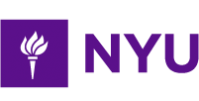There is one session available:
4,098 already enrolled!
After a course session ends, it will be archivedOpens in a new tab.Starts Nov 21
Ends Dec 31
About this course
What you'll learn
Instructors
Ways to take this course
edX For Business
5 weeks
6–8 hours per week
Self-paced
Progress at your own speed
Free
Optional upgrade available
There is one session available:
After a course session ends, it will be archivedOpens in a new tab.
Starts Nov 21
Ends Dec 31
Advanced Database Administration
At a glance
- Institution: NYUx
- Subject: Computer Science
- Level: Intermediate
- Prerequisites:
This is the 3rd course in the introductory, undergraduate-level offering that makes up the larger Introduction to Databases MicroBachelors Program. We recommend taking them in order, unless you have a background in these areas already and feel comfortable skipping ahead.
These topics build upon the learnings that are taught in the introductory-level Computer Science Fundamentals MicroBachelors program, offered by the same instructor.
- Language: English
- Video Transcript: English
- Associated programs:
- MicroBachelors Program in Introduction to Databases
About the instructors
Interested in this course for your business or team?
Train your employees in the most in-demand topics, with edX For Business.

